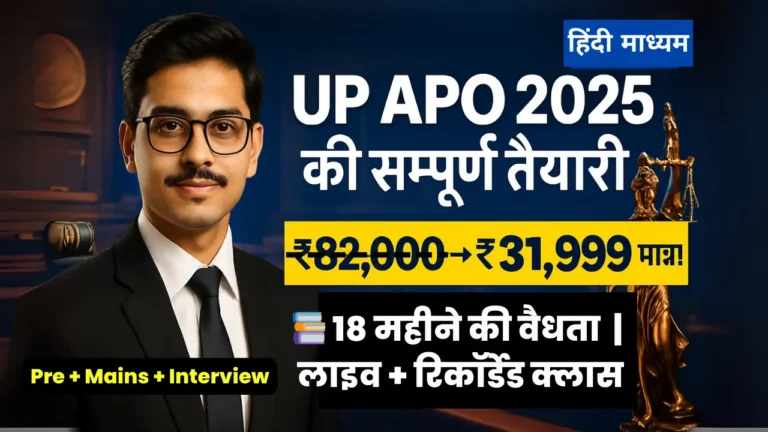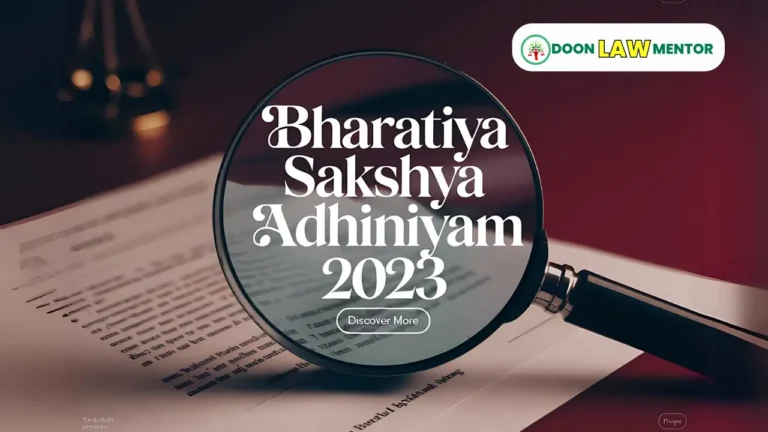In 2025, succession disputes in India, driven by unclear wills, gender biases, and digital assets, challenge families and courts. Explore key legal issues under the Indian Succession Act, Hindu Succession Act, and emerging trends, with solutions to ensure fair inheritance.
Table of Contents
Introduction
Succession disputes, often emotionally charged and legally complex, remain a significant challenge in India, with over 1.5 million inheritance-related cases pending in courts as of 2025, per the National Judicial Data Grid (NJDG). These disputes arise when heirs contest the division of a deceased person’s estate, governed primarily by the Indian Succession Act, 1925, Hindu Succession Act, 1956, and personal laws for Muslims, Christians, and Parsis. In 2025, issues like ambiguous wills, gender discrimination, ancestral property rights, and emerging concerns over digital assets fuel conflicts. This educational blog delves into the key legal issues surrounding succession disputes in India, recent judicial and legislative developments, and practical solutions to mitigate conflicts, ensuring equitable asset distribution while aligning with constitutional principles like Article 39A (equal access to justice).
Legal Framework Governing Succession in India
Succession in India is regulated by a combination of statutory and personal laws, depending on the deceased’s religion and whether a will exists:
- Indian Succession Act, 1925: Governs testamentary (with a will) and intestate (without a will) succession for Christians, Parsis, and those not covered by other personal laws. It outlines will validity, probate, and intestate distribution rules.
- Hindu Succession Act, 1956: Applies to Hindus, Buddhists, Jains, and Sikhs, defining inheritance for intestate and testamentary succession. The 2005 amendment granted daughters equal coparcenary rights.
- Muslim Personal Law (Shariat) Application Act, 1937: Governs Muslim succession, with male heirs typically receiving double the share of female heirs, though a 2025 Supreme Court plea seeks application of the Indian Succession Act for equal division.
- Special Marriage Act, 1954: Applies to interfaith marriages, where succession follows the Indian Succession Act, overriding religious personal laws.
- Succession Certificates: Issued under the Indian Succession Act to establish heirs’ rights to movable assets like bank accounts, often required in intestate cases or disputes.
These laws aim to ensure orderly estate distribution, but ambiguities and societal factors often lead to disputes.
Read More: Doctrine of Transfer of Malice under Section 102, Bharatiya Nyaya Sanhita 2023
Key Legal Issues in Succession Disputes in 2025
Succession disputes in India in 2025 are driven by a mix of traditional, procedural, and emerging legal challenges:
1. Ambiguities in Wills and Testamentary Succession
Issue: Unclear or poorly drafted wills are a primary cause of disputes, with 40% of will-related cases in 2025 involving challenges to validity, per Bar and Bench. Issues like coercion, fraud, or lack of testamentary capacity (e.g., mental incapacity) lead to litigation, as outlined in Section 61-63 of the Indian Succession Act.Examples:
- In K Laxmanan v. Thekkayil Padmini (2009), the Supreme Court emphasized that the propounder must prove the will’s legality, free of suspicious circumstances.
- Disputes arise when wills omit key assets or beneficiaries, as seen in a 2025 Delhi High Court case where a will excluding a daughter was challenged for undue influence, per LiveLaw. Debate: Should courts adopt stricter standards for will execution to reduce ambiguity, or prioritize testator intent despite minor errors?
Impact: Prolonged probate processes, with 60% of probate applications taking over a year, per NJDG, delay asset distribution.
2. Intestate Succession and Class Heir Disputes
Issue: In the absence of a will, intestate succession under the Hindu Succession Act or Indian Succession Act often sparks conflicts over heir classification. For Hindus, Class I heirs (e.g., spouse, children, mother) have priority, followed by Class II (e.g., father, siblings), but disputes arise when heirs disagree on shares or eligibility.Examples:
- The Vineeta Sharma v. Rakesh Sharma (2020) ruling clarified daughters’ equal coparcenary rights, yet 2025 sees disputes over ancestral property division, especially in rural areas, per LawCrust.
- For Muslims, Shariat’s unequal shares (males receiving double) face challenges, with a 2025 Supreme Court plea seeking gender-neutral succession under the Indian Succession Act. Debate: Should personal laws be harmonized with constitutional equality principles, or do they reflect cultural diversity?
Impact: Intestate disputes, requiring succession certificates, take 45-90 days for resolution, per NoBroker, straining families.
3. Gender Discrimination and Women’s Inheritance Rights
Issue: Despite the Hindu Succession (Amendment) Act, 2005, granting daughters equal rights, societal biases and family pressures hinder women’s inheritance, with 30% of female heirs facing disputes, per a 2025 HelpAge India report. Muslim women, under Shariat, receive half the share of male heirs, prompting legal challenges.Examples:
- The Hindu Succession (Amendment) Bill, 2023, introduced by Shri V.K. Sreekandan, proposes including non-remarried daughters-in-law as heirs for female intestate succession, addressing gaps in Section 15, per LawCrust.
- A 2025 Bombay High Court case upheld a daughter’s coparcenary rights against brothers’ claims, reinforcing gender equality, per LiveLaw. Debate: Can legislative reforms overcome patriarchal norms, or is societal awareness the key?
Impact: Women face emotional and financial stress, with 50% of inheritance disputes involving gender-based claims, per NJDG.
4. Ancestral vs. Self-Acquired Property Disputes
Issue: Distinguishing between ancestral (coparcenary) and self-acquired property under the Hindu Succession Act remains contentious. Ancestral property is divided among coparceners (sons, daughters), while self-acquired property can be bequeathed freely via a will. Misclassification fuels disputes, with 25% of property cases in 2025 involving this issue, per ACM Legal.Examples:
- A 2025 Karnataka High Court case saw siblings contesting a father’s “self-acquired” land, claimed as ancestral, delaying division for two years, per Bar and Bench.
- Section 6 of the Hindu Succession Act, amended in 2005, clarifies coparcenary rights, but disputes persist over documentation, per ClearTax.Debate: Should courts mandate clearer property documentation to prevent misclassification?
Impact: Families face economic stagnation, as assets remain frozen during litigation.
5. Digital Assets and Emerging Challenges
Issue: The rise of digital assets (e.g., cryptocurrencies, online accounts) complicates succession, with no clear provisions in the Indian Succession Act. 70% of estates in urban India now include digital assets, per a 2025 Pravasitax report, yet disputes arise over access and ownership.Examples:
- A 2025 Mumbai court grappled with a dispute over a deceased’s cryptocurrency wallet, lacking a will specifying access, per LiveLaw.
- Nominees of bank accounts or digital platforms are not legal heirs, leading to conflicts, as clarified in Aloysius Manuel D’Souza v. Mary Kamal (2006).Debate: Should the Indian Succession Act be amended to address digital assets explicitly?
Impact: Heirs face delays in accessing digital wealth, with 80% of cases requiring expert intervention, per NoBroker.
6. Cross-Border and NRI Succession Disputes
Issue: Non-Resident Indians (NRIs) with assets in India face complex succession disputes due to differing laws for movable (governed by domicile law) and immovable property (governed by Indian law). 20% of succession cases in 2025 involve NRIs, per LawCrust.Examples:
- A 2025 Delhi High Court case involved an NRI’s UK-domiciled will conflicting with Indian intestate laws for immovable property, per Lexology.
- Probate delays for NRIs, averaging 18 months, exacerbate disputes, per NoBroker.Debate: Should India adopt uniform cross-border succession rules, or maintain domicile-based distinctions?
Impact: NRIs face tax complications and legal battles, reducing estate value.
Recent Developments in 2025
Several judicial, legislative, and technological advancements shape succession disputes in 2025:
- Hindu Succession (Amendment) Bill, 2023: Proposes a revised succession order for female intestate Hindus, including non-remarried daughters-in-law, aiming for inclusivity. 60% of family disputes may benefit, per LawCrust.
- Supreme Court Plea for Muslim Succession: A Muslim woman’s plea to apply the Indian Succession Act for equal shares challenges Shariat’s gender-based rules, with a response sought by January 2025, per Indian_Analyzer on X.
- Online Dispute Resolution (ODR): Platforms like SAMA resolve 30% of succession disputes virtually, reducing costs by 40%, per LiveLaw. Courts integrate ODR under Section 89 CPC for mediation.
- e-Courts Project: The Supreme Court’s initiative digitizes probate and succession certificate processes, cutting processing time by 25%, per NJDG.
- Vineeta Sharma Legacy: The 2020 ruling’s impact continues, with 70% of coparcenary disputes in 2025 involving daughters’ rights, per LawCrust.
Challenges in Resolving Succession Disputes
Despite progress, several challenges persist:
- Court Delays: Succession cases take 2-5 years on average, with 3-4% court fees on asset value, per LiveMint.
- Lack of Awareness: Only 40% of Indians draft wills, per a 2025 NoBroker survey, increasing intestate disputes.
- Fraud and Forgery: Forged wills and succession certificates, reported in 15% of cases, complicate litigation, per Aran Law.
- Cultural Barriers: Patriarchal norms and family pressures deter women from claiming rights, especially in rural areas, per HelpAge India.
- Digital Asset Gaps: Absence of legal frameworks for digital assets leads to 50% of urban disputes involving access issues, per Pravasitax.
Proposed Solutions for 2025
To address these issues, the following solutions are proposed:
- Mandatory Will Education: Launch nationwide campaigns, like NALSA’s 2025 Legal Literacy Drive, to increase will drafting to 60% by 2030, reducing intestate disputes.
- Digital Asset Legislation: Amend the Indian Succession Act to include provisions for digital assets, specifying access protocols, as recommended by Lexology.
- Fast-Track Succession Courts: Establish dedicated benches for succession disputes, aiming to resolve cases within 6 months, as piloted in Mumbai courts.
- Gender-Sensitive Reforms: Enforce the Hindu Succession (Amendment) Bill, 2023, and address Shariat’s gender disparities through judicial rulings, ensuring equality.
- ODR Expansion: Scale up ODR platforms to handle 50% of disputes by 2026, integrating AI for case triage, per SAMA’s 2025 roadmap.
- NRI Legal Desks: Set up dedicated court desks for NRI succession cases, reducing probate delays to 6 months, as suggested by NoBroker.
Red More: Top 10 Current Affairs for 1st May 2025 : Key Updates
Conclusion
Succession disputes in India in 2025, fueled by unclear wills, gender biases, ancestral property conflicts, digital assets, and cross-border complexities, pose significant legal and emotional challenges. The Indian Succession Act, 1925, and Hindu Succession Act, 1956, provide robust frameworks, but gaps in implementation and societal norms exacerbate conflicts. Recent developments, like the Hindu Succession (Amendment) Bill, 2023, and ODR integration, signal progress, yet issues like court delays and digital asset ambiguities persist. By adopting solutions like mandatory will education, fast-track courts, and digital asset legislation, India can ensure fair and timely estate distribution, aligning with Article 39A’s vision of equal justice. As families navigate these disputes, legal awareness and proactive planning remain key to safeguarding legacies and fostering harmony.
Read More: Civil Justice for Senior Citizens in 2025: Key Issues and Debates
FAQs
1. What are the main causes of succession disputes in India?
Ambiguous wills, intestate succession conflicts, gender biases, ancestral property misclassification, and digital asset ambiguities drive disputes.
2. Which laws govern succession in India?
The Indian Succession Act, 1925, Hindu Succession Act, 1956, Muslim Personal Law, and Special Marriage Act, 1954 apply, based on religion and circumstances.
3. How do women’s inheritance rights stand in 2025?
The 2005 Amendment grants Hindu daughters equal coparcenary rights, but societal biases and Shariat’s unequal shares for Muslims pose challenges.
4. What is a succession certificate?
A court-issued document authorizing heirs to inherit movable assets in intestate cases or disputes, taking 45-90 days, per NoBroker.
5. How can digital asset disputes be resolved?
Clear will provisions and proposed amendments to the Indian Succession Act can address access and ownership issues.
6. What role does ODR play in succession disputes?
ODR platforms like SAMA resolve 30% of disputes virtually, reducing costs and time, per LiveLaw.
Tags: Succession Disputes, Indian Succession Act, Hindu Succession Act, Inheritance Laws, Digital Assets, Gender Equality, India 2025
Hashtags: #SuccessionDisputes #InheritanceLaws #HinduSuccessionAct #DigitalAssets #GenderEquality #IndianJudiciary2025







